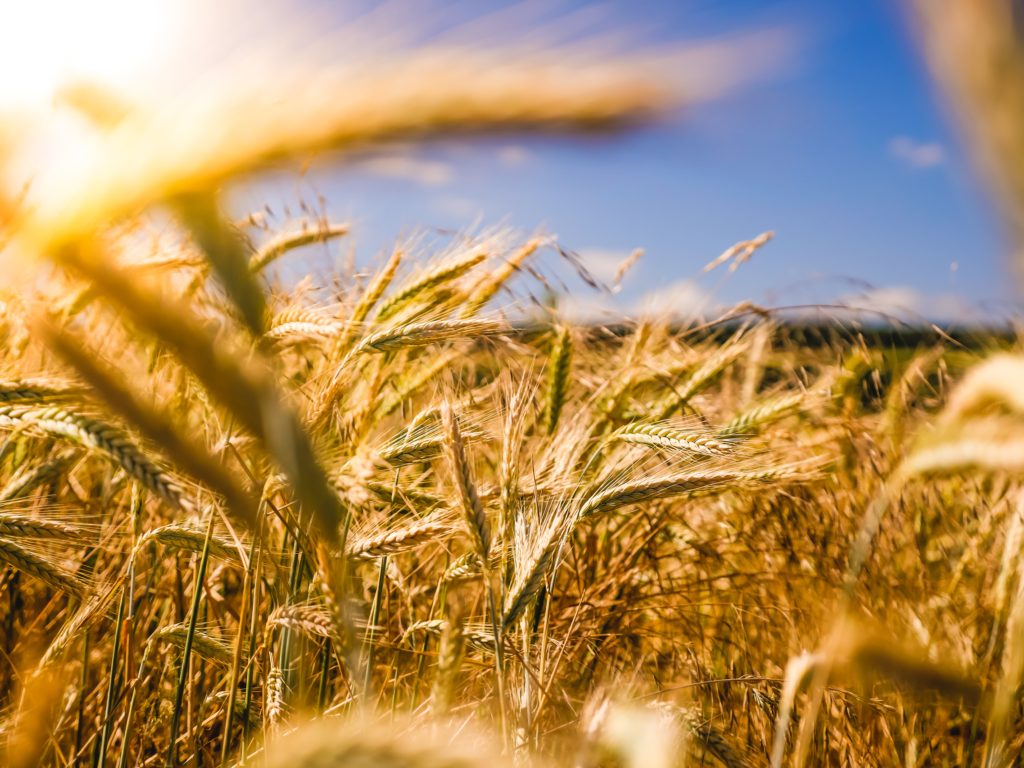
When it comes to being sustainable, there are lots of areas we can make changes in, to ensure we are living a more sustainable life, such as the products we buy for our home, or the way in which we travel. Another big way in which we can be more ethical and sustainable, is by looking at what we eat. There is no legal definition of the term ‘sustainable food’ but there are certain terms, such as organic and fair-trade that most people will have heard of.
With more of us looking at ways we can be more sustainable within our lives, looking at the food we eat is one of the things we can easily change. Even just simply by changing our diet to a vegan diet or cutting down on the amount of meat that we consume can make a difference. Making choices about the food we eat, looking at how it is produced and buying food from companies and businesses who produce their food in ethical ways is a good way to ensure that the food we eat is more sustainable.

The choices that we make when it comes to our food is important as this is essential in maintaining a healthy lifestyle, however it’s something that a lot of people perhaps don’t spend too much time thinking about. Sustainable food begins at the source, with farmers and producers, so it is important to know where your food comes from, and the processes that they have in place to ensure that the food you are eating is sustainable and healthy. The method in which animals are raised affect the ethics of eating that animal. Using livestock to maintain the land then eating the produce is an extremely ethical way of meat production and benefits the environment. If the demand for meat decreased, then the number of livestock used in this type of system is likely to also fall, and more manpower and machinery would be required to maintain the landscape.
Many people try to ensure that the food they consume is as healthy as possible, which is why many people opt for organic options, especially when it comes to fresh fruit and vegetables. The term ‘organic’ means that the food has been grown without the use of synthetic chemicals, such as human made pesticides and fertilisers, and doesn’t include genetically modified organisms (GMOs). A possible downside to choosing organic food is the price tag that can often be associated with them, and with the cost of living rising, this is something that may put people off from buying organic.
One thing to consider however, is that there is evidence that organic food has some health benefits, such as containing more antioxidants and other nutrients, however it is worth noting that many organic foods will most likely spoil faster than other foods.
There are lots of ways in which we can eat more sustainably, one way is to choose suppliers and producers who share the same sustainable visions. Choosing to buy from local producers will also help to ensure that their carbon footprint is low. As well as the companies we choose, the type of food we eat can also help to ensure that we are eating more sustainably, such as eating less meat and more plants. The livestock industry generates almost 15% of all man made greenhouse gas emissions, so by eating less meat and more plants, we can help to reduce this figure, and also help to improve our diets.
Not only do we need to think about what we are eating, but also the amount of food that we are wasting by throwing away, rather than consuming.
Here are a couple of facts about the amount of global food waste that you may not be aware of:
The main way to reduce the amount of food waste, is to only buy what you want to consume and check the expiry dates, as many foods can be frozen to keep them fresh if they are close to their use-by date. There are a few food waste organisations that exist to help with this problem such as:
A lot of businesses are starting to focus on the ways that they can be more sustainable in terms of travel and business procedures, but there are also ways that they can encourage their staff to be more sustainable within their own lives. If you provide snacks or even a staff canteen for employees, choosing locally sourced products will help to ensure that these items are not only helping the environment, but also local, independent suppliers too and this will in turn cut down the carbon footprint as there will be less travel involved with using a local supplier.
Another thing you may want to do to encourage your staff to eat more healthily is to provide healthy snacks for them in the office. You could even have one day a month that you all choose to eat vegan food, and you can make this fun and motivate everyone by getting them to share their favourite recipes.
We can help business’s find ways they can be more sustainable and reach their Net Zero goals. Whether you are looking to boost your business’s green initiatives, demonstrate your Corporate Social Responsibility or reduce your carbon footprint, we can help you. We work with a select group of trusted partners to bring our customers a range of sustainable solutions and can provide sustainability consulting for you and your business.
Contact our Sustainability Expert, Oliver Denison today to discuss what renewable technologies we can help you with and help you on your Net Zero journey.
"Indigo Swan were professional but with a personable approach. Their market knowledge allowed me to enter new contracts with confidence, this was something I was unable to do with my previous broker."
Joanna Thornton, Estate Manager
"The experience behind the Indigo Swan team, their passion and integrity were all important to us. They clearly understood the market and could provide the best advice. "
Phil Riseborough, Head of Facilities
"We’ve worked with other energy consultants, but with Indigo Swan we get real integrity and service that is way beyond our expectations. We have already saved over £120k."
Jason Wakefield, Procurement Manager
| Cookie | Duration | Description |
|---|---|---|
| TawkConnectionTime | session | Tawk.to, a live chat functionality, sets this cookie. For improved service, this cookie helps remember users so that previous chats can be linked together. |
| Cookie | Duration | Description |
|---|---|---|
| SRM_B | 1 year 24 days | Used by Microsoft Advertising as a unique ID for visitors. |
| Cookie | Duration | Description |
|---|---|---|
| CONSENT | 2 years | YouTube sets this cookie via embedded youtube-videos and registers anonymous statistical data. |
| MR | 7 days | This cookie, set by Bing, is used to collect user information for analytics purposes. |
| _ga | 2 years | The _ga cookie, installed by Google Analytics, calculates visitor, session and campaign data and also keeps track of site usage for the site's analytics report. The cookie stores information anonymously and assigns a randomly generated number to recognize unique visitors. |
| _gat_gtag_UA_12371872_1 | 1 minute | Set by Google to distinguish users. |
| _ga_* | 1 year 1 month 4 days | Google Analytics sets this cookie to store and count page views. |
| _gcl_au | 3 months | Provided by Google Tag Manager to experiment advertisement efficiency of websites using their services. |
| _gid | 1 day | Installed by Google Analytics, _gid cookie stores information on how visitors use a website, while also creating an analytics report of the website's performance. Some of the data that are collected include the number of visitors, their source, and the pages they visit anonymously. |
| Cookie | Duration | Description |
|---|---|---|
| ANONCHK | 10 minutes | The ANONCHK cookie, set by Bing, is used to store a user's session ID and also verify the clicks from ads on the Bing search engine. The cookie helps in reporting and personalization as well. |
| MUID | 1 year 24 days | Bing sets this cookie to recognize unique web browsers visiting Microsoft sites. This cookie is used for advertising, site analytics, and other operations. |
| test_cookie | 15 minutes | The test_cookie is set by doubleclick.net and is used to determine if the user's browser supports cookies. |
| VISITOR_INFO1_LIVE | 5 months 27 days | A cookie set by YouTube to measure bandwidth that determines whether the user gets the new or old player interface. |
| YSC | session | YSC cookie is set by Youtube and is used to track the views of embedded videos on Youtube pages. |
| yt-remote-connected-devices | never | YouTube sets this cookie to store the video preferences of the user using embedded YouTube video. |
| yt-remote-device-id | never | YouTube sets this cookie to store the video preferences of the user using embedded YouTube video. |
| yt.innertube::nextId | never | This cookie, set by YouTube, registers a unique ID to store data on what videos from YouTube the user has seen. |
| yt.innertube::requests | never | This cookie, set by YouTube, registers a unique ID to store data on what videos from YouTube the user has seen. |
| Cookie | Duration | Description |
|---|---|---|
| CLID | 1 year | No description |
| SM | session | No description available. |
| twk_idm_key | session | No description |
| _clck | 1 year | No description |
| _clsk | 1 day | No description |
